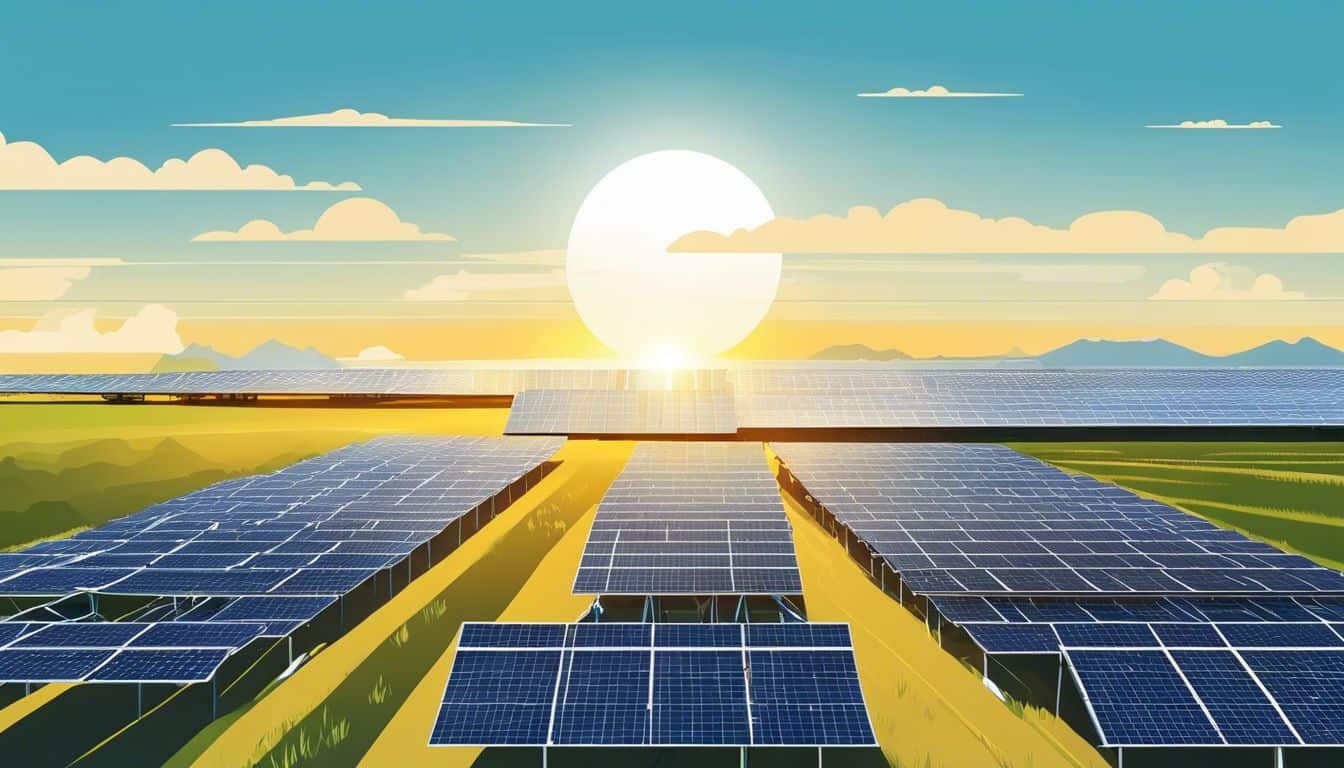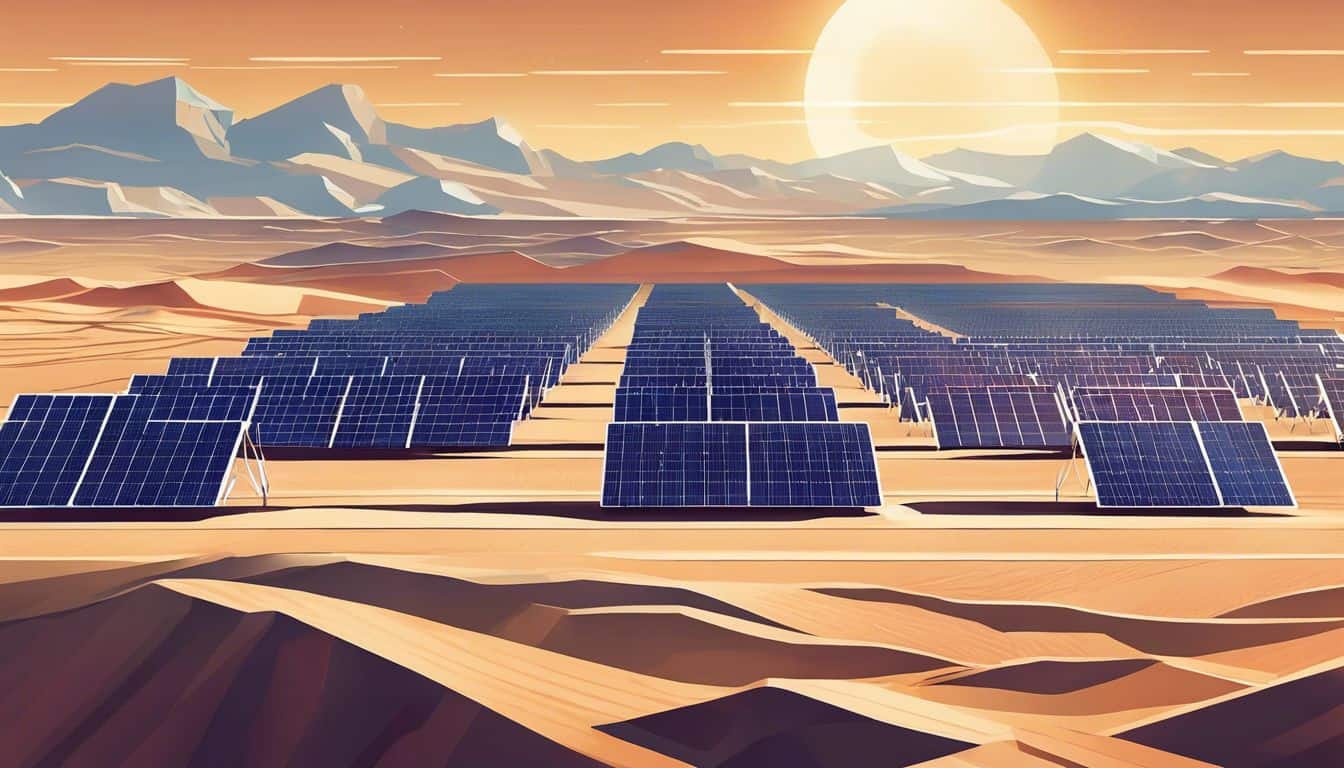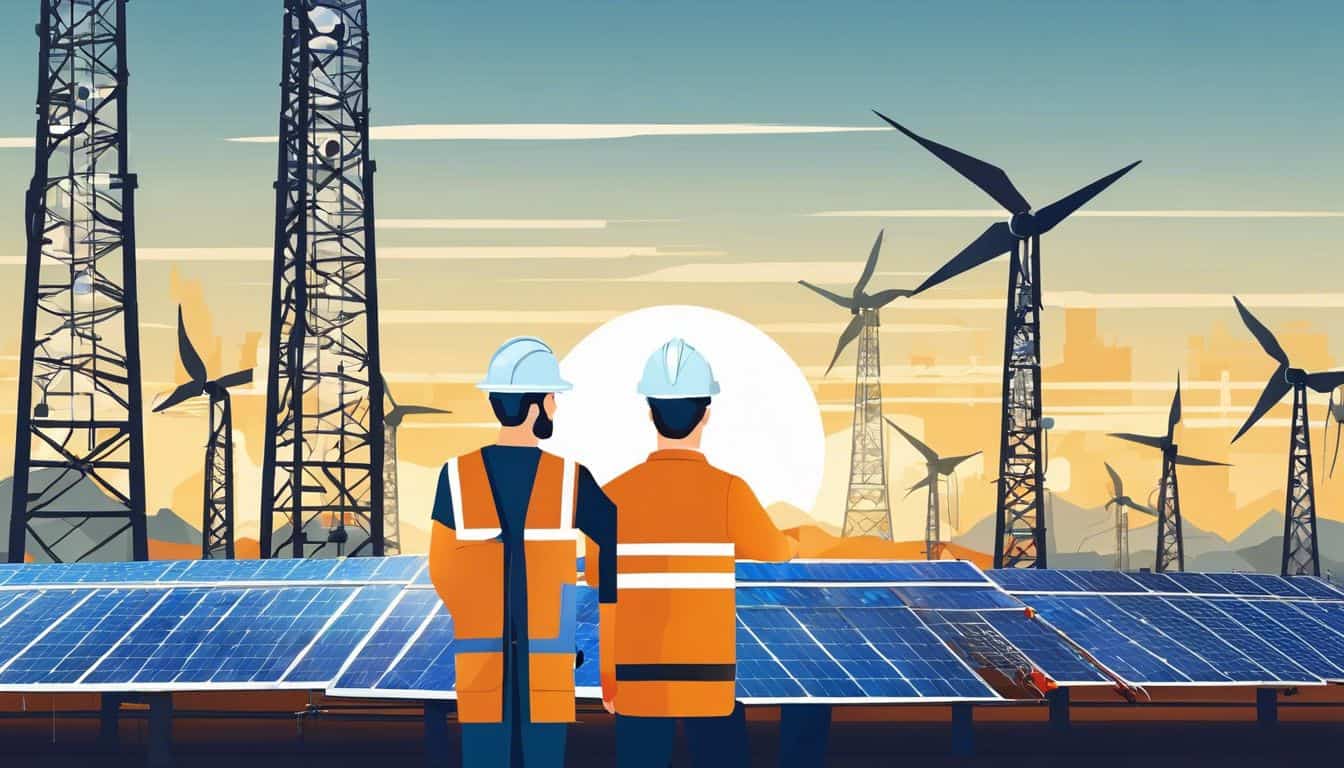Concentrated solar power (CSP) has emerged as a promising technology with significant growth potential. This innovative approach to harnessing solar energy contributes to a more sustainable future. It opens up a wide array of exciting career opportunities.
In this article, we’ll explore the diverse and rewarding career paths within the CSP industry, illuminating the ways in which professionals can contribute to this rapidly evolving field.
The CSP Industry Landscape
The concentrated solar power market has seen remarkable growth in recent years, with projections indicating continued expansion. According to recent market research, the global CSP market is expected to reach $XX billion by 2030, growing at a CAGR of XX% from 2023 to 2030. This growth is driven by increasing demand for clean energy, technological advancements, and supportive government policies worldwide.
Key players in the CSP industry include companies like Abengoa Solar, BrightSource Energy, and ACWA Power, with significant developments occurring in regions such as Spain, the United States, China, and the Middle East. The evolution of concentrated solar power technologies has been rapid, with ongoing innovations in areas such as thermal energy storage, heliostat design, and heat transfer fluids.

Career Opportunities in CSP
The CSP industry offers a diverse range of career opportunities across various disciplines:
- Engineering Roles
- Solar Thermal Engineers: Design and optimize CSP systems, focusing on heat transfer and thermal energy storage.
- Optical Engineers: Develop and improve mirror systems and solar collectors for maximum efficiency.
- Mechanical Engineers: Work on turbines, heat exchangers, and other mechanical components of CSP plants.
- Electrical Engineers: Design and maintain electrical systems for power generation and distribution.
- Project Development and Management
- Site Assessment Specialists: Evaluate potential locations for CSP plants, considering factors like solar irradiance and land suitability.
- Project Managers: Oversee CSP project planning, construction, and commissioning.
- Financial Analysts: Assess the economic viability of CSP projects and develop financial models.
- Construction and Installation
- Construction Managers: Supervise the building of CSP plants, ensuring adherence to timelines and safety standards.
- Solar Installers: Specialize in installing CSP components, including mirrors and receivers.
- Quality Control Inspectors: Ensure all installed components meet required specifications and standards.
- Operations and Maintenance
- Plant Operators: Manage the day-to-day operations of CSP facilities.
- Maintenance Technicians: Perform regular maintenance and repairs on CSP equipment.
- Performance Analysts: Monitor and optimize plant performance, identifying areas for improvement.
- Research and Development
- Materials Scientists: Develop new materials for improved heat transfer and storage capabilities.
- Energy Storage Specialists: Research and develop advanced thermal energy storage solutions.
- Efficiency Improvement Researchers: Work on enhancing the overall efficiency of CSP systems.
For those interested in staying at the forefront of CSP technology, our concentrated solar power innovations guide provides insights into the latest advancements in the field.
Skills and Qualifications
Success in CSP careers typically requires a strong foundation in STEM fields, particularly in engineering disciplines related to thermal systems, optics, and power generation. Many roles require at least a bachelor’s degree, with advanced positions often calling for master’s or doctoral degrees.
Essential technical skills include:
- Thermodynamics and heat transfer.
- Solar resource assessment.
- Power systems engineering.
- Computer-aided design (CAD).
- Data analysis and modeling.
Soft skills are equally important, including:
- Project management.
- Problem-solving.
- Communication and teamwork.
- Adaptability to new technologies.
The Future of CSP Careers
The future of CSP careers looks bright, with emerging technologies continually creating new opportunities. Advancements in thermal energy storage, hybrid systems combining CSP with other renewable sources, and the potential for CSP in industrial process heat applications are all areas of growth.
As the industry evolves, new roles are likely to emerge, such as:
- AI and machine learning specialists are needed to optimize CSP plant operations.
- Experts in integrating CSP with smart grids and energy management systems.
- Specialists in CSP-powered desalination and other industrial applications.
For insights into how CSP is being integrated into the broader energy landscape, check out our article on the future grid integration of concentrated solar power.
Conclusion
The concentrated solar power industry offers many career opportunities for those passionate about renewable energy and sustainable technology. From engineering and project management to research and operations, there are diverse pathways for professionals to contribute to this growing field. As the world continues to shift towards cleaner energy sources, careers in CSP offer personal growth and job satisfaction and the chance to significantly impact our planet’s future.

FAQs
What career opportunities are available in the Concentrated Solar Power (CSP) industry?
The growing field of CSP offers a wide range of exciting career paths, including:
- Manufacturing technicians who build and assemble CSP components
- Solar installation specialists who set up and maintain CSP systems
- Electrical engineers who design and optimize CSP power plants
- Project managers who oversee the construction and operation of CSP facilities
- Research scientists who develop new CSP technologies and improve efficiency
What skills and qualifications are needed for a career in CSP?
Careers in CSP require a combination of technical skills and specific qualifications, such as:
- Knowledge of electrical wiring and mechanical systems
- Understanding of solar energy principles and CSP technologies
- Proficiency in computer-aided design (CAD) and simulation software
- Strong problem-solving and analytical skills
- Degrees or certifications in relevant fields, such as electrical engineering or renewable energy
What educational paths can lead to a career in CSP?
There are several educational routes to prepare for a career in the CSP industry:
- High school diploma with vocational training in electrical or mechanical systems
- Associate degree in renewable energy or electronics
- Bachelor’s degree in electrical, mechanical, or energy engineering
- Master’s degree in solar energy or a related field
- Internships and apprenticeships to gain hands-on experience in CSP projects
What challenges and future prospects can be expected in a CSP career?
While a career in CSP offers many opportunities, it also comes with some challenges:
- The solar industry can be affected by changes in government policies and market conditions
- Rapid technological advancements require continuous learning and adaptation
-
Competition for jobs may increase as more people enter the field
However, the future prospects for CSP careers are promising: -
The demand for clean energy is growing, driving the expansion of the CSP industry
- Advancements in CSP technology are creating new job opportunities and specializations
- International collaboration and projects offer possibilities for global career growth
How can someone start building a career in the CSP industry?
To embark on a career in CSP, consider the following steps:
- Gain a strong foundation in math and science courses
- Pursue relevant education and training in renewable energy or engineering
- Seek internships or entry-level positions in CSP companies to gain practical experience
- Network with professionals in the CSP industry through conferences, workshops, and online forums
- Stay updated on the latest CSP technologies and industry trends to remain competitive in the job market

Leave a Reply